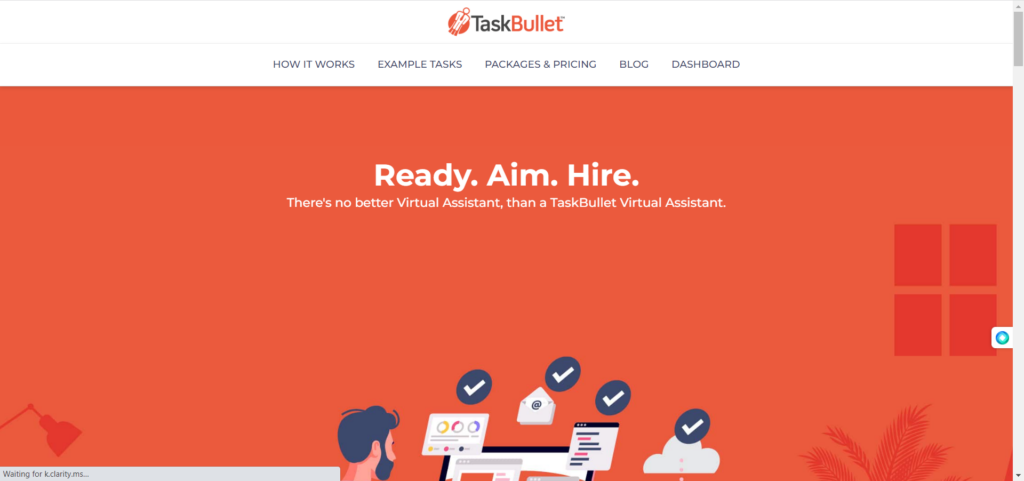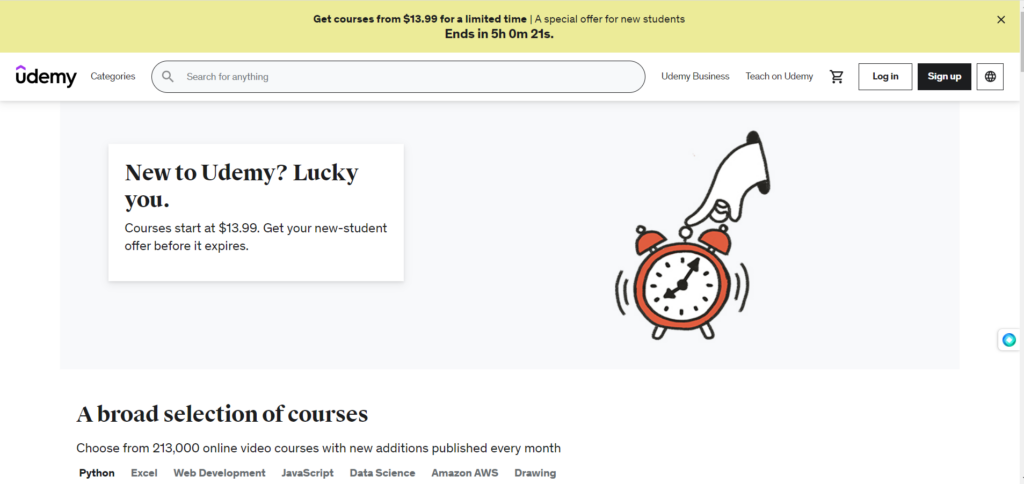Are you planning how to make money online in Kenya? People are making money all over the world.
Kenya is no exception to the trend of making money online.
The internet allows people to work remotely.
This article aims to provide readers with legitimate ways to make money online in Kenya.
Why Making Money Online Is a Good Idea In Kenya
Kenyans should make money online for several reasons.
First, online entrepreneurship is a cheap way for Kenyans to start and grow their own businesses.
Second, online income offers a level of flexibility that traditional jobs may not provide, allowing individuals to work on their own schedule and from any location.
Third, the low start-up costs associated with many online business models make it an accessible option for people from all socioeconomic backgrounds.
Finally, the internet allows Kenyans to reach a global market and make money from international customers.
Overview Of Benefits Of Earning Money Online In Kenya
Benefits of making money online in Kenya:
Flexibility
Online work allows individuals to work on their own schedule, making it a great option for people who need to balance their work with other responsibilities.
Low start-up costs
Many online business models require little or no funding to start.
Access to a global market
Kenyans can reach a global audience on the Internet, creating more income opportunities than local markets.
Multiple income streams
Many online business models allow for multiple income streams, which can provide financial stability.
Comparison Of Online Money With Traditional Income Sources
Compared to traditional income sources like formal employment or small brick-and-mortar businesses, earning money online offers several advantages.
Online income sources often have lower overhead costs, require less formal education or training, and can be done from anywhere with an internet connection.
However, they may require more self-motivation, discipline, and technology comfort than traditional jobs.
Best Ways To Make Money Online In Kenya
1. Freelancing

Freelancing involves self-employment and project-based work.
Freelancers can work anywhere and set their own schedules. Freelancing in Kenya is a popular way to make money online.
Kenyan freelancers can work on graphic design, content writing, web development, virtual assistance, social media management, and more.
These jobs are flexible and allow one to work in a field one loves.
So, freelancing offers flexibility, higher earnings, the chance to work in a field one loves, and the ability to work from anywhere.
How To Get Started With Freelancing
Choose a niche or area of expertise you are genuinely enthusiastic about and have relevant skills and experience in.
This will help a freelancer to stand out and attract clients who need their specific expertise.
Importance of a portfolio of work samples
A freelancer’s portfolio showcases their best work and skills. Having a strong portfolio is essential for attracting clients and winning projects.
Tips For Success In Freelancing
Networking and building relationships
Building relationships with clients and other freelancers is essential for growing one’s business and finding new opportunities.
Joining professional groups and attending networking events can help freelancers connect with potential clients and colleagues.
Building a strong reputation and brand
Maintaining a professional online presence and delivering high-quality work on time can help freelancers build a strong reputation and attract repeat clients.
2. Blogging

Blogging is popular for expressing creativity, sharing knowledge, and making money.
Steps you need to take:
Choose a niche
Starting a blog begins with choosing a niche. This could be anything from cooking and travel to personal finance or fitness.
Choose a topic you love and know well. This will help you create engaging content.
Create a blog
Create your blog after choosing your niche. Blogs can be created on WordPress or Blogger.
You don’t need technical skills to use these platforms. You’ll need a domain name that’s memorable and fits your niche.
You’ll also need to choose a hosting provider to store your blog files and make them accessible online.
How to write content
After setting up your blog, start writing. You’ll need to write quality blog posts regularly to keep your audience engaged.
Make your posts more visually appealing with Images, videos, and infographics.
After writing blog posts, promote them. You can share your posts on forums and other online communities related to your niche.
How To Monetize a Blog
After gaining a large following, monetize your blog. There are several methods.
For example, your blog can display ads from Google AdSense.
You can also approach brands in your niche for sponsorships.
Affiliate marketing is another blog monetization method.
This involves promoting products or services on your blog and earning a commission for every sale made through your affiliate link.
You can sign up for affiliate programs like Amazon Associates, ShareASale, or Commission Junction.
3. Affiliate Marketing

Affiliate marketing involves promoting products or services through a referral link.
How it works:
How to choose a product or service to promote
Affiliate marketing starts with choosing a product or service.
Choose a product that fits your blog niche or interests. It will help you write engaging content that promotes the product.
Platforms To Sign Up For Affiliate Marketing
After selecting the product, join the affiliate program. Affiliate programs like Amazon Associates, ShareASale, and Clickbank are popular.
Affiliate programs are free and easy to join. After applying, you’ll get a referral link to promote the product.
Earn a commission for each sale made through your referral link
If someone clicks on your referral link and buys, you get a commission.
The commission percentage depends on the affiliate program and product.
Some programs pay a flat commission per sale, while others pay a percentage of the sale amount.
4. Online Surveys

Earning money online is becoming more popular as the internet becomes more accessible.
Participate in online surveys. For extra cash or gift cards, Toluna and Swagbucks are popular online survey platforms.
How to sign up
Online survey platforms are simple to sign up for. Name, email, and age should be provided. Some platforms could ask for your location and line of work.
Complete surveys and earn rewards
After signing up, you can take surveys for points or cash. Surveys vary in duration, difficulty, and rewards.
Some surveys take a few minutes, while others take longer.
Note that demographics or prior answers may disqualify you from some surveys.
To maximize profits, complete as many surveys as feasible.
Participating in focus groups or introducing friends to an online survey platform may also generate points or monetary prizes.
Redeem rewards
You can redeem points or cash prizes for cash or gift cards after earning enough.
The redemption method varies by platform but is usually basic.
Some platforms offer gift cards, while others pay cash to your bank account or PayPal account.
You may need to achieve a particular quantity of points or cash rewards before redeeming them.
Certain prizes expire if not redeemed within a specific timeframe.
5. Online Tutoring

The internet has made it simpler than ever to share your knowledge and expertise through teaching, which is a wonderful career.
How to choose a subject or skill to teach
Choosing a subject or skill you love and know well is the first step to becoming an online tutor.
This could be anything from math or science to language instruction, painting, or computer programming.
It’s important to choose a subject or skill that you’re comfortable teaching and that has a market demand.
Do some research to find out which subjects or skills are in demand and which platforms are looking for tutors in those areas.
Set up a profile on tutoring platforms
Once you’ve chosen your subject or skill, it’s time to set up a profile on tutoring platforms like Chegg or Udemy.
These platforms offer a ready-made audience and a convenient way to reach potential students.
Showcase your skills and give prospective students a reason to hire you.
Create lesson plans and deliver them online
After setting up your profile, it’s time to create lesson plans and deliver them to students online.
The key to successful online tutoring is to be organized, engaging, and responsive. Make a simple, student-focused lesson plan.
Provide your pupils clear directions, examples, and exercises.
Use video, music, and other multimedia to make your courses clear and interesting.
Build a good reputation
Ultimately, as an online tutor, you must create an excellent reputation and client base.
This requires favorable student reviews, fast responses to queries and concerns, and continuous high-quality lectures.
Communicate with students, listen to their criticism, and make adjustments.
Promote your teaching services and brand on social media and other marketing channels.
6. Selling Digital Products

Want to make passive income and share your expertise? Making digital products helps with both.
Tips:
Create digital products
Choose a format that fits your skills and audience before developing digital items.
A writer could write an eBook about their specialty. Photographers can sell stock pictures.
You can teach a skill or subject online as a teacher. Create a digital product in your field.
After choosing a format, create your product. Depending on the product, you may write, design, record, or film.
Provide useful, high-quality material for your audience.
Sell digital products
After creating your digital product, sell it on Gumroad or Etsy.
These platforms make selling digital products easy and handle payment and delivery.
Choose a platform that fits your product and audience.
Clearly describe pictures, and price your digital goods.
Facilitate product discovery and purchase. Discounts or bundles may boost sales.
Promote digital products
Promote your digital products on social media and other avenues to increase sales.
Create a blog or YouTube channel to explain your skills and products.
Promote your products on social media and with niche influencers and bloggers. Give them a free sample and encourage them to promote it.
7. Online Writing And Editing

The first step to finding writing or editing jobs is to create a profile on a freelance platform or content mill like Textbroker.
These platforms provide a convenient way to find work, and they often handle payment processing and communication with clients.
Be sure to choose a platform that suits your expertise and target audience.
Once you’ve created your profile, search for relevant writing or editing jobs.
Read job descriptions attentively and apply for opportunities that match your skills and experience.
Consider applying for jobs that offer long-term or recurring work, as this can provide more stability and income over time.
How to create a portfolio
To showcase your writing or editing skills, it’s important to create a portfolio of samples that potential clients can review.
This may involve creating blog posts, articles, product descriptions, or other types of writing samples.
If you’re an editor, consider creating before-and-after samples that demonstrate your editing skills.
Make sure your portfolio samples match the jobs you’re applying for.
Choose your best work and ensure that it is error-free and polished.
Apply for jobs
Provide relevant writing or editing samples from your portfolio and highlight your relevant experience.
If you’re awarded a job, be sure to deliver quality work on time.
Communicate with the client regularly and ask for feedback to ensure that you’re meeting their expectations.
Be sure to read the job description carefully and address any specific requirements or preferences the client may have.
Build a good reputation
Finally, a good reputation helps you gain clients and business.
Communicate with clients professionally and promptly. Provide quality work on schedule and seek feedback to improve.
Provide referral or repeat clients discounts or perks.
7. Dropshipping

Choosing a niche or product to sell is the first step to opening an online store.
This could be handcrafted jewelry, vintage apparel, or pet supplies. Choose a market-demanded niche or product you love.
Study prospective competitors and think of methods to set your store apart.
Set up an online store
After picking a niche or product, create an internet store. Shopify, WooCommerce, and BigCommerce are options.
These platforms make developing your online store’s look and setting up payment processing easy.
Make sure your online store theme matches your brand and items.
Personalize your store’s homepage, product, and checkout pages.
Make your business user-friendly and clearly promote your products.
Find suppliers and list products
Next, you’ll need to find suppliers and list their products in your store.
There are several ways to find suppliers, including reaching out to manufacturers directly or using dropshipping suppliers.
Dropshipping allows you to list products in your store without holding inventory.
Your supplier distributes products to customers that buy from your store.
List products in your store with engaging descriptions that highlight features and benefits.
Multi-angle, high-quality product photographs. Update product listings, pricing, and availability.
Promote your products
Establish social media accounts for your store and post product photographs and descriptions often.
To reach more people, use Facebook or Instagram ads.
Promote your products with niche influencers or bloggers in addition to social media. Provide referral bonuses to clients.
8. Virtual Assistance

You can provide several services to businesses and individuals as a virtual assistant.
These services may include email management, data input, social media administration, customer support, appointment scheduling, and more.
Assess your strengths and identify services you can confidently offer.
Set up a profile on virtual assistant platforms
Signup on TaskBullet or Zirtual to discover virtual assistant clients.
These platforms pair virtual assistants with clients. Showcase your skills and work on your profile.
Apply for relevant jobs
Apply for relevant jobs. Personalize your ideas and explain how your talents and expertise fit the job.
Clients want timely, high-quality work. Set timeframes and deliverables with clients. Respond to client comments and exceed expectations.
Build a good reputation
To build a good reputation as a virtual assistant, and provide high-quality work and excellent customer service.
Request client feedback and use it to improve services. Maintain a professional and positive attitude, even in challenging situations.
As you build a good reputation, you’ll start to see repeat business and referrals from satisfied clients.
Use social media and other channels to promote your services and showcase your work.
Consider offering special promotions or discounts to attract new clients.
9. Web Development and Design

Before working, web developers and designers must learn the necessary skills. Web development classes are online.
For example, PHP, HTML, CSS, and JavaScript on Codecademy, Udemy, and Lynda.
Choose courses that match your interests and abilities and be prepared to work.
Create a portfolio of projects
To showcase your skills and attract potential clients, create a portfolio of web development or design projects.
This portfolio should include examples of your work and highlight your strengths as a web developer or designer.
Set up a profile on freelancing platforms
After building a portfolio and skillset, create an Upwork or Freelancer profile.
These platforms match freelancers with clients. Showcase your skills and work through your profile.
Apply for relevant projects
Apply for relevant projects. What does this statement mean?
Well, it’s simple …
Apply for projects that match your skills and experience.
Personalize your proposals and explain how your skills and experience fit the project.
Deliver high-quality projects on time. Clarify deadlines and deliverables with clients. Exceed expectations of clients.
Build a good reputation
Provide high-quality work and great customer service to build a good web developer or designer reputation.
Use customer feedback to improve your services. Even in difficult situations, stay professional.
As your reputation grows, satisfied customers will return and refer you.
Promote your services and work on social media and other platforms.
Offer discounts or promotions to attract new customers.
10. Online Trading

Trading stocks, currencies, and commodities are exciting and profitable.
Buying and selling courses and tutorials are available online for beginners.
Choose a trading platform
After learning the basics, choose a trading platform.
A trading platform is software that lets you buy and sell financial instruments.
Trading platforms like eToro, IQ Option, and Plus500 are available.
Choose a platform with low fees, a simple interface, and many financial instruments.
How to start trading
After creating your trading strategy, start trading with small amounts.
Trading with a small amount allows you to practice without risking too much.
Trading is risky, so expect to lose money initially. Risk management and trading strategy consistency are important.
Analyze and learn from your trading results
As you trade, it’s essential to analyze and learn from your trading results.
Keep a trading journal to record your trades, including entry and exit points, profit or loss, and any notes or observations.
Analyze your trades regularly to identify patterns and areas for improvement.
Learn from your mistakes and adjust your trading strategy accordingly. As you trade, you’ll gain confidence and profit.
Final Thoughts
People in Kenya can now make extra or full-time money online.
Find your niche, set realistic goals, and invest in learning to succeed in freelancing, online surveys, affiliate marketing, online tutoring, and more.
By following best practices, avoiding common mistakes, and staying motivated and consistent, anyone can make money online in Kenya.
Don’t be afraid to explore online money-making and start your financial freedom journey today!
